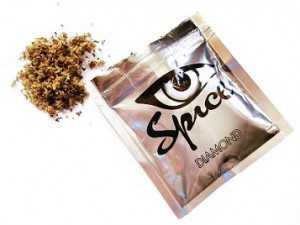 Novel psychoactive substances, also known as synthetic drugs, designer drugs, “Spice,” and “bath salts,” are notoriously difficult to legislate as it seems that as soon as a substance is scheduled as a controlled substance under state or federal law, the formula is changed and a new variety appears on the market that is technically legal.
Novel psychoactive substances, also known as synthetic drugs, designer drugs, “Spice,” and “bath salts,” are notoriously difficult to legislate as it seems that as soon as a substance is scheduled as a controlled substance under state or federal law, the formula is changed and a new variety appears on the market that is technically legal.
States have tried several innovative approaches to address this problem, including passing legislation to revoke the business, liquor, and/or tobacco licenses of licensed businesses that sell novel psychoactive substances; adopting emergency regulations to schedule substances more rapidly; and scheduling substances through the use of class definitions or descriptions, such as substituted cathinones or tryptamines. Scheduling substances through the use of class definitions allows legislators to cover an entire class of substances at once rather than scheduling new drugs on an individual basis, though many states do include specific substances as examples of the particular class within the class definition.
The year 2015 saw more than 100 bills and regulations proposed at both the federal and state level related to novel psychoactive substances. Three states – Hawaii, Illinois, and South Carolina – introduced legislation that, if passed, would require the state scheduling authority (e.g., Board of Pharmacy or Department of Safety), in consultation with the state or county police, to report to the governor and legislature at least once every 90 days and notify those entities of any new psychoactive substances that have been identified and, further, to immediately propose an emergency rule to schedule any such substances.
An additional four states – Oregon, Pennsylvania, Rhode Island, and Texas – proposed legislation providing that any synthetic drug that is not currently scheduled under state or federal law but that is similar in structure or pharmacological effect to a Schedule I or II substance that is already regulated shall be treated as a Schedule I or II controlled substance. Both California and Washington introduced legislation providing that the advertising, distribution, or sale of a substance containing a synthetic cannabinoid or synthetic stimulant is an unlawful deceptive practice or act. The Washington bill passed and became effective on July 1, 2015.
Multiple states and Congress introduced legislation modifying or adding class definitions. In most cases, the added classes included adamantoylindoles, benzoylindoles, indole carboxamides, and indazole carboxamides. Of those states with proposed legislation or regulation adding or modifying class definitions, 12 bills or rules were enacted in 11 states – Illinois, Kansas, Louisiana, New Hampshire, New York, North Carolina, North Dakota, Oklahoma, South Dakota, Tennessee, and Texas. The federal bill is still pending. Iowa introduced legislation that, if passed, would make the distributor and manufacturer of a synthetic cannabinoid strictly liable for any damages caused by the suicide or attempted suicide of an individual that was proximately caused by the ingestion of such substance.
New Hampshire passed legislation that makes it a violation for any retail establishment, sale outlet, food service licensee, or alcoholic beverage licensee to sell or distribute a synthetic drug, while New York has two bills pending that provide that any person, firm, corporation, partnership, association, limited liability company, or other entity that sells, offers for sale, distributes, or gives away any synthetic cannabinoid shall, after a third violation within a five-year period, be prohibited from selling cigarettes and tobacco products, lottery tickets, and alcoholic beverages for a period of five years. Each of these provisions is designed to make it less profitable for retail outlets to sell synthetic drugs.
At this time, there is no real way to anticipate which additional novel psychoactive substances will be emerging, although there are resources available, mainly out of Europe, for legislators at the federal, state, and local level to identify substances that perhaps have not yet made it to the United States. Those resources include the New Synthetic Drugs Database, the Advisory Council on the Misuse of Drugs, and the European Monitoring Centre for Drugs and Addiction. Since most novel psychoactive substances appear in Europe before making their way to the United States, keeping an eye on these sites for any new substances can provide an advantage to legislators in scheduling these substances.
Heather Gray, Legislative Director of National Alliance for Model State Drug Laws
Published
January 2016
 Get Support
Get Support
